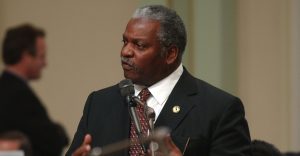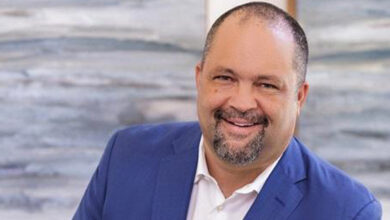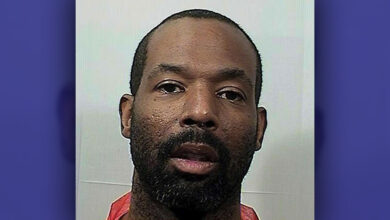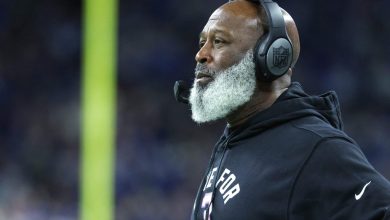Cultural Racism Worsens Health Inequities Between Racial Groups

By Antonio Ray Harvey
California Black Media
Numerous studies have shown that Black teachers can improve Black students’ academic outcomes, but in California, where Black Students are the lowest performing sub-group of all ethnic groups, the state has an extremely low count of African American instructors working in school districts across the state.
According to the California Department of Education’s 2018-2019 Ethnic Distribution of Public School Teachers, Black teachers disproportionately make up 3.8% of the state’s 12,000 public school classroom instructors.
Black people account for about 5.7% of California’s total population of almost 40 million people.
“Addressing the educator shortage is one of the most important things we can do to support student achievement,” stated Tony Thurmond, the state’s Superintendent of Public Instruction.
“We must increase compensation, prioritize training, improve working conditions, and pursue all strategies that can help our schools add staff to help our students thrive,” Thurmond continued.
Thurmond made this assessment at a news conference before he hosted a Teacher Recruitment Summit at the California Department of Education (CDE) in Sacramento last month.
The Teacher Recruitment Summit was opened to individuals from all organizations focused on reducing the teacher shortage. The event formally launched a coalition to engage in direct recruitment of teacher candidates statewide.
The summit included information about teacher credentialing programs affiliated with school districts and county offices of education, pipeline programs, and AmeriCorps programs.
CDE is addressing the needs of Black educators but there are some people who found channels to enter the profession outside of the traditional process, including Nisha Britton who is employed at Angelo Rodriguez High School in Northern California.
Britton, 37, is a Special Education specialist at the school located in Fairfield, 45 miles east of San Francisco. She just started her first year working with special education students where there are about five Black teachers among the faculty.
Britton, who has a bachelor’s degree in communications/Journalism from Morgan State University — a Historically Black College and University (HBCU) in Maryland — says she is aware of the shortage of Black teachers in the state. She’s motivated to combat the issue on multiple levels.
“There is a lot of diversity at this school, but I feel like these kids need someone like me,” Britton told California Black Media (CBM). “I want to help these kids figure out what they want out of life.”
Angelo Rodriguez High School opened in 2001 and is the newest of the three comprehensive high schools in Fairfield-Suisun Unified School District. Angelo Rodriguez High School is located in Fairfield.
Britton is not fully certified as an educator. She found a pathway through the California Commission on Teacher Credentialing program (CTC) which certifies her for two years. CTC is committed to ensuring the integrity, relevance, and high quality in the preparation, certification, and discipline of the educators who serve the state’s diverse students, according to the organization’s website.
There were more than 10,000 teacher vacancies across California during the 2020-2021 school year. The state has allocated $3.6 billion in funding over the last four years to improve recruitment, training and retention.
Dr. Travis Bristol, associate professor of Teacher Education and Education Policy at Berkeley School of Education, was one of the guest speakers at Thurmond’s news conference.
Through his extensive research, Bristol has been at the forefront of increasing Black male participation in public school education.
According to the U.S. Department of Education’s the State of Racial Diversity in the Educator Workforce, educators of color account for less than 10% of all public-school teachers across the country. Black males represent 1.9% of that total.
Based on CDE’s 2018-2019 figures, Black male teachers in California accounted for one percent (3705) of 307,470 instructors in the state. The student population in the state was 6,186,278 during the last school year.
While doing research in Boston, Bristol discovered that Black male educators had one of the highest rates of turnover. Most of them left the profession due to poor working environments, feelings of isolation and the perception that they are the overseers of problematic students rather than educators, and the inability to receive adequate tools from school administrators.
Bristol and other Black educators have facilitated professional learning networks across the state where Black male teachers can discuss their challenges.
Bristol, who majored in English as an undergrad at Amherst College, expressed gratitude and urged caution in recruitment, saying that there are other “critical issues” as to why there is a low count of Black men and women educators.
The UC Berkeley professor said he does not advocate for a “replacement theory.” White students perform well academically and benefit from having Black teachers, too.
“The research and evidence is clear that when students of color have a teacher of color they persist in school. They are less likely to get suspended, and have higher achievement,” Bristol said. “But as we spend some time thinking about recruitment, let us not lose sight of thinking about and pushing for recruitment, supporting and sustaining ethnic racial diversity in the workforce.”




